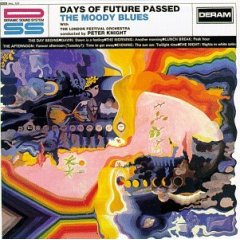For as long as I have loved and followed Classic Rock music, the most talked about and heated discussion (other than the Paul Is Dead rumors, but that’s a whole other topic) has been about the definition of Classic Rock. What is Classic Rock? What makes an artist Classic Rock? When does the timeline start and/or end? You could ask one-hundred different music “experts” these questions and you could quite possibly get one-hundred different answers. I see Classic Rock as being an era of music with a definitive beginning and end (with the latter of the two being the hardest to distinguish). I believe this is the part of the argument that people’s opinions differ the most. It seems to me that most FM radio Classic Rock stations treat Classic Rock as a certain genre and sound, with no definitive cut off point for artists. They believe that by adding 80’s Hair Metal and 90’s Grunge to their playlists will attract new listeners. While I do not argue their logic for doing this, I cannot agree with playing artists such as Pearl Jam, Nirvana, Poison, etc. alongside the classic artists of the 60’s and 70’s. I am a firm believer that age does not constitute a band becoming “classic”. Classic Rock radio also tends to lean on the heavier side of Classic Rock and plays very little songs from the pre-Sgt. Pepper era. The Classic Rock era to me starts in 1963 with Bob Dylan releasing “The Freewheelin’ Bob Dylan” and the Beatles releasing their first two albums “Please Please Me” and “With the Beatles.” All subsequent British rock bands who followed in the Beatles footsteps in 1963-1964 are considered Classic Rock to me. Some of these artists include: Gerry & The Pacemakers, The Searchers, The Kingsmen, The Animals, The Dave Clark Five, Manfred Mann, The Pretty Things, The Swinging Blues Jeans, and the Zombies to name a few. Artists from the second wave of British bands in the mid-1960’s as well as the garage rock and folk rock scene are included. Basically any “rock” band in the 1960’s starting with the British Invasion and folk rock movement is considered Classic Rock to me. The one band that raises the most controversy for me is the Beach Boys. I believe personally that everything pre-Good Vibrations and Pet Sounds and after their psychedelic stage is not considered Classic Rock. The early and mid 1970’s are a lot easier to sort out, but once we start getting into the punk and new wave scene are when things get a little blurry. I personally think that if a rock band was formed and released music in the 1970’s they are considered Classic Rock. This includes the original Punk Rock scene (Ramones, Sex Pistols, The Clash, etc) and the original new wave scene (Blondie, Pretenders, The Cars). This also brings up questions of bands like U2 and Def Leppard. U2 formed in 1976 while Def Leppard formed in 1977 with both releasing EP’s in 1979. Does this make them Classic Rock? No, not in my opinion because both bands’ hey-day’s were in the 1980’s and their sound was not in the style of the previous decade. With that said, rock music from the 80’s from bands who were popular and active in the 60’s and 70’s is considered Classic Rock to me as long as they stayed in the Classic Rock style. For example, all of AC/DC’s albums up to “Razor’s Edge” and all of Tom Petty’s material up to “Wildflowers” is Classic Rock.
Like I’ve said before, this is my opinion on what Classic Rock is. I would like to hear what you guys consider Classic Rock to be, whether you view it as an era or as a specific genre, or neither.
 In 1967 the Moody Blues created a whole new genre of rock music by releasing Days Of Future Passed, which is widely considered the first ever Progressive Rock album. The album is a landmark and groundbreaking album in its own right. Never before had a rock album mixed the rock style with classical music. The album traces the day of an ordinary person from dawn to dusk. Although this album is not considered the Moody Blues best, it is arguably their most important contribution to music as it would influence generations to come.
In 1967 the Moody Blues created a whole new genre of rock music by releasing Days Of Future Passed, which is widely considered the first ever Progressive Rock album. The album is a landmark and groundbreaking album in its own right. Never before had a rock album mixed the rock style with classical music. The album traces the day of an ordinary person from dawn to dusk. Although this album is not considered the Moody Blues best, it is arguably their most important contribution to music as it would influence generations to come. 
